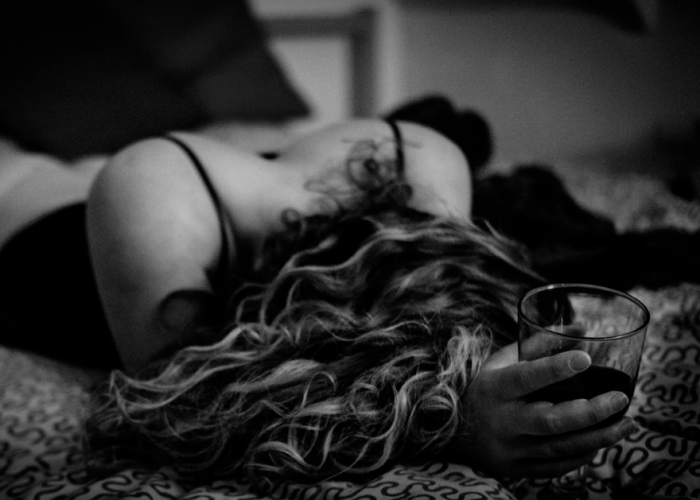It’s amazing how we humans scoff at perceived weakness in other humans.
And while many of us have become a bit more sensitive and supportive in recent years, history shows that we tend to scoff and shake our heads at addiction. We judge it. We turn away from it, and we watch it from afar. Addiction is something other people deal with, because some are simply weaker than others.
Too often, without facts to support our opinions, we negatively criticize what we fear. We project creative, often fictional scenarios to explain why addiction happens. Bad parenting. Unfortunate circumstances.
Addiction triggers this response because it is a displayed manifestation of the “weaknesses” we carry in ourselves and hope to avoid. Make no mistake, every single one of us employs something to cope with the inner and outer stresses of simply being human. And just because we don’t always see it on the surface doesn’t mean it’s not there.
Newsflash: Addiction doesn’t care who we are, how much money we have, where we live, our age, our gender, or our circumstances. Addiction is a disease that doesn’t give a f*ck about anything.
We’ve seen it depicted in the movies. The person with the “problem” is a character, not a real human being. He or she is someone to look at or away from. It’s a troubled person who makes us uncomfortable to watch. Someone to point at. Someone “not like us” at all—someone beyond help. The homeless bum. The druggie. The alcoholic. The raving lunatic. The crazy one with all the issues.
“Issues” are portrayed as though mental illness is something that could be controlled with just a little more effort and willpower—a horrible thing that doesn’t’ require outside help or medication.
She’s needy, he’s obsessed. She’s weird, he’s angry. They’re both depressed.
“I got clean and sober without help, I did it cold turkey!” is waved like a banner and glorified by those who “overcome” addiction without outside intervention, even though their stories are an exception to the rule.
I am bulimic. I’ve suffered with this eating disorder for the majority of my life, and truth be told, I suffer still. I will never not have an eating disorder. It’s my issue, my problem. I use food to numb the pain I experienced as a little girl at the hands of an adult who molested me and told me he would kill me if I ever told anyone. I didn’t talk about it for 40 years. The event, the sledge-hammered kink in my timeline, essentially rearranged my wires and tripped my system.
My addiction to the physical and emotional release of binging and purging food was and still is part of the way I cope with my feelings and experiences. I’ve sought help and I’ve conquered my demons many times over, but the monster that is my thing—my addiction—rears its ugly head every so often, despite my best efforts. I actively battle my illness, and I continue to write about my quest for joy and inner peace, but I still deal with this disease, and I probably always will.
The core burden of humanity is that we aren’t perfect, and yet we still, for some reason, strive for perfection because we think it will lead to happiness. And we tend to show our disdain when others aren’t perfect either. But the truth is, I have issues, and so do you. Some of us choose extra healthy addictions, like exercise, for example, but “living at the gym” is viewed as “obsessive.” Some of us choose extra “good” options, like philanthropy, but that is then viewed as “too consuming.” Some of us “hoard” stuff, we collect objects and things, but that is yet another way we are filling a void. Managing our chosen addictions, good or bad, is about balance (and yes, it’s obviously about abstinence in the case of drugs and alcohol).
How do we find the balance we seek? One way to do it is to push the reset button every day. If we can make decisions based on our consistent attempts at being present, instead of perfect, we lose the “all or nothing” mentality, and we can see every moment as a moment to start over.
The beginning of helping ourselves comes from recognizing this simple truth: we’re not perfect, and never will be, but what we can do is try to be better. The coping mechanisms (our addictions) we use to deal with life as it comes will then diminish. When we “cut ourselves some slack,” we can do the same for others too. People with problems are people just like us, not characters to laugh at or turn away from.
Our addictions connect us—they do not alienate or separate us. Our inner turmoil is often the same, even if the drug of choice is different. We struggle with relationships and careers. We doubt our self-worth and purpose. We feel insecure or anxious. Some of us are even addicted to being “right” all the time. We love the way alcohol and drugs numb our emotional pain. We seek to fill what is empty, and we often, though not always, find detrimental ways to do it.
When we recognize that most of our addictions stem from similar human needs and experiences, we can then see ourselves reflected in every other living, breathing human being.
“We are not perfect.” This alone is the kindred nature of humanity.
~
AUTHOR: KIMBERLY VALZANIA
IMAGE: THIJS PAANAKKER/FLICKR


No comments:
Post a Comment